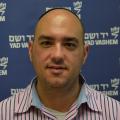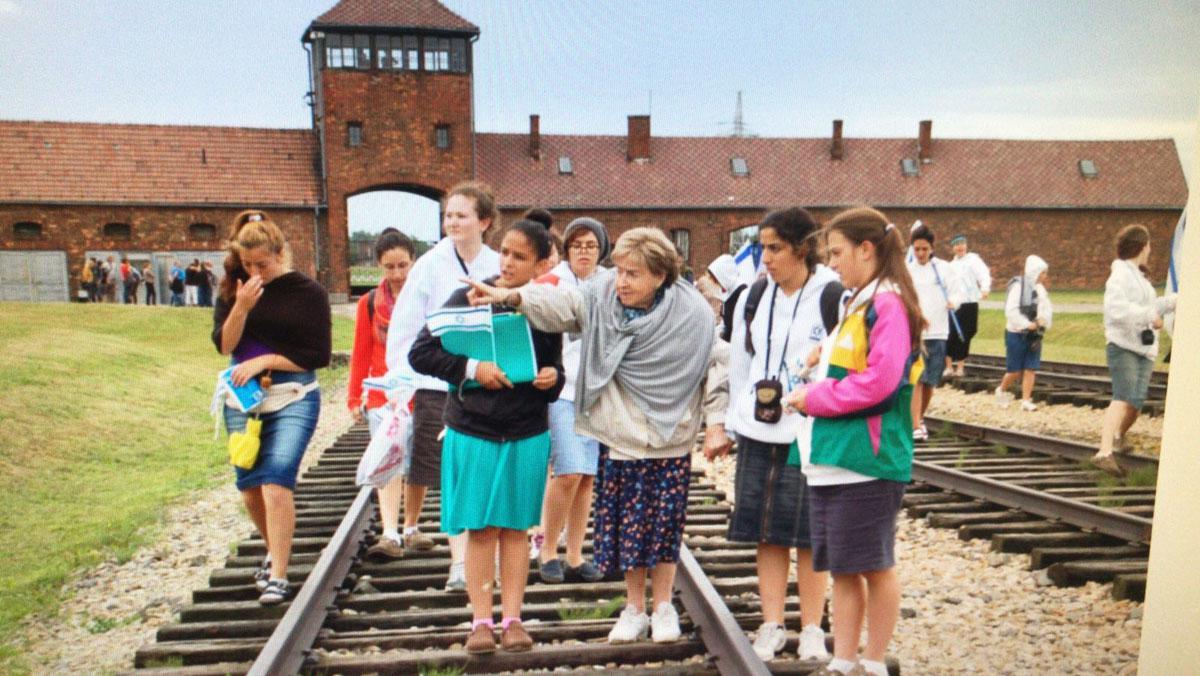

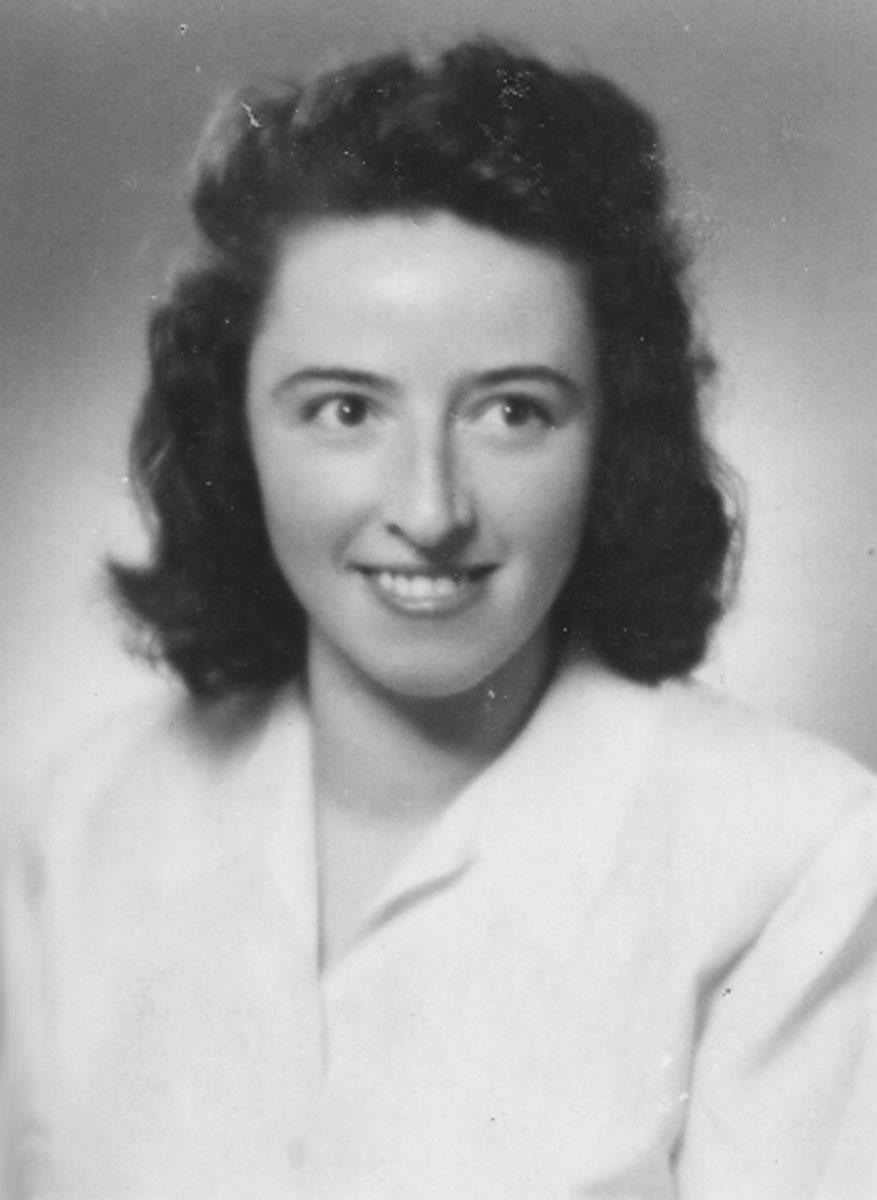

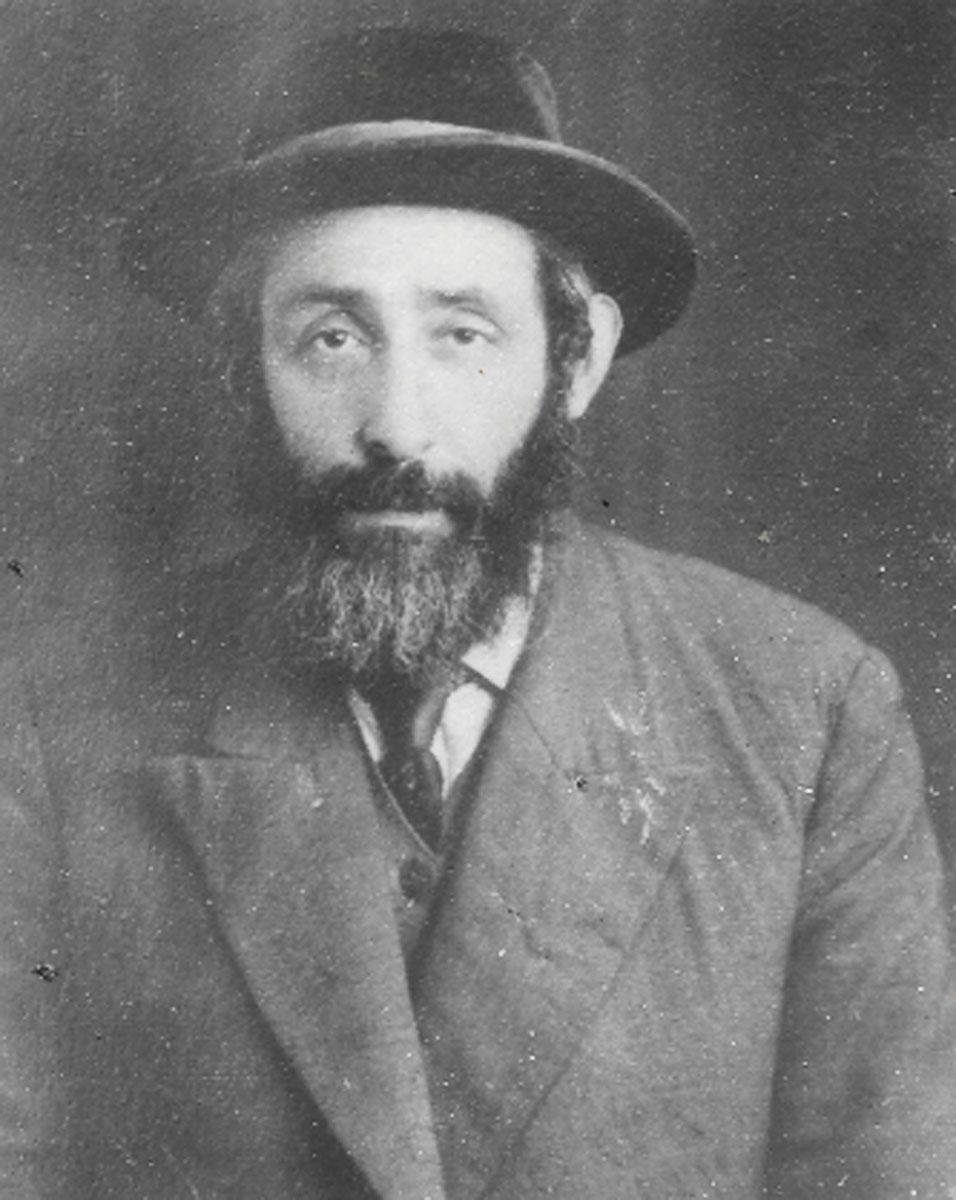

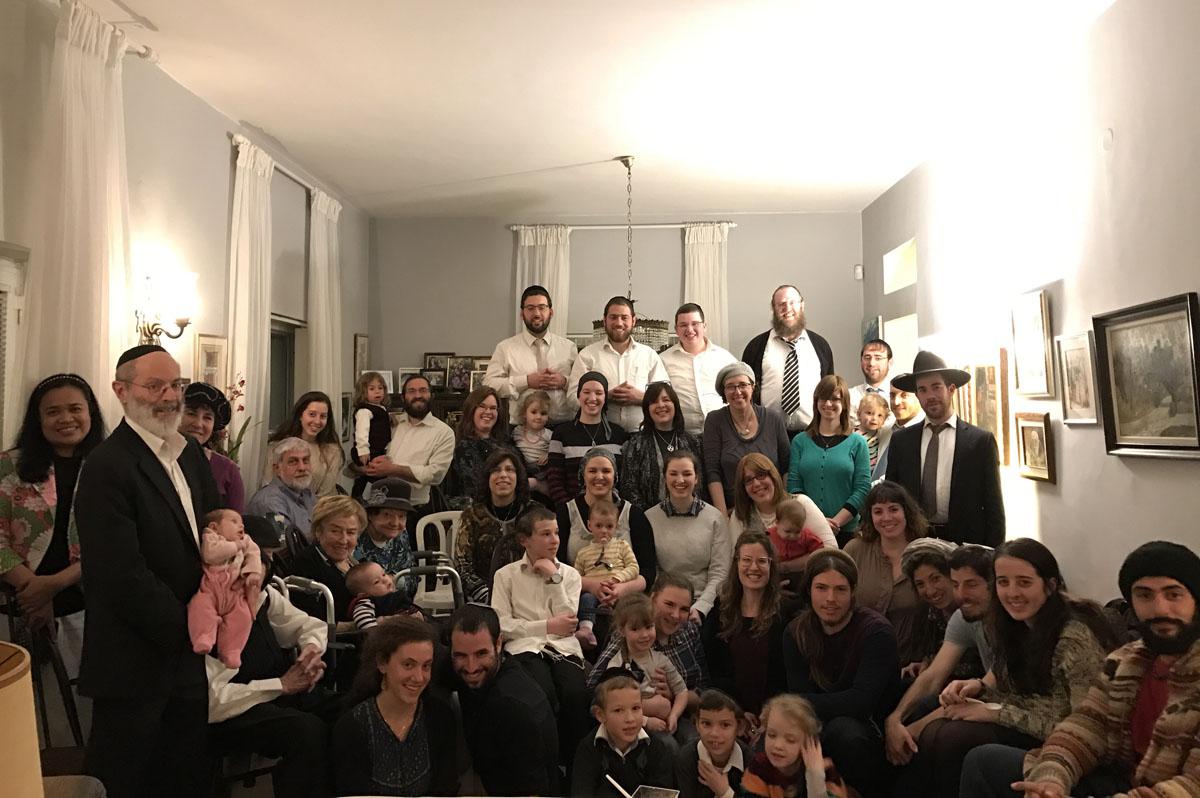

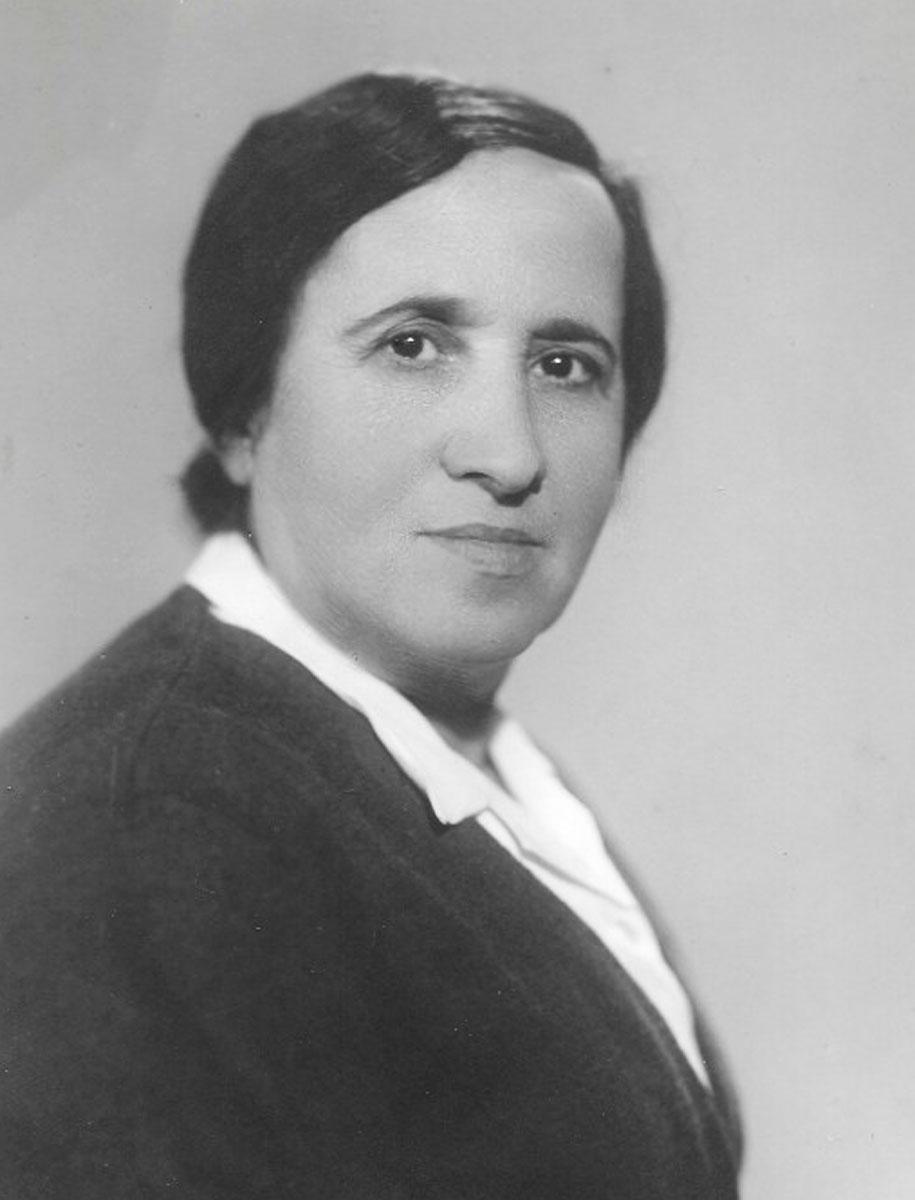

In April 2022, the same week Jews all over the world observed Holocaust Martyrs' and Heroes' Remembrance Day, Yad Vashem, the World Holocaust Remembrance Center in Jerusalem, inaugurated a new Holocaust Educational Center in the south of Israel. This unique learning environment, entitled "Before My Very Eyes," was built in the middle of Israel's largest military base, the Ariel Sharon IDF Training Center in the Negev, just outside of Be'er Sheva. The new Center comprises a specially curated overview of the Shoah, as well as interactive display areas that present value-based exhibits connected to the Jewish experience during those terrible years, in order to encourage soldiers and other visitors to reflect on their role in society today.
Alongside the Yad Vashem leadership, donors and military representatives in attendance at the inaugural event on 26 April 2022, a diminutive, unassuming, elderly woman was present: Holocaust survivor Giselle (Gita) Cycowicz. Despite her frail disposition, Gita commanded the room when she began to talk to all those assembled, and tell her heart-wrenching story.
Giselle (Gita) Cycowicz (née Friedman) was born in 1927 in the town of Chust in the Carpathian Mountains, then part of Czechoslovakia. The population of Chust numbered about 20,000, more than a third of whom were Jewish. Her father was a Torah scholar and a Zionist, a rare combination in those parts, and he earned a respectable livelihood as a businessman. Her mother, a rabbi's daughter, ran a fine household, and raised three well-groomed daughters. Gita was the youngest child in this observant and Zionist Jewish family.
Gita recalls:
"My sisters and I had a good childhood. I enjoyed going to school and during our free time we went swimming in the river or climbed up to the fortress on top of the mountain at the edge of town with many of our friends. But all that changed in September 1939, when World War II started."
Despite the relative calmness during the first years of the war, Jews in Hungary were subject to many of the same racial laws enacted in Germany, the "Nuremberg Laws," which restricted their personal and communal freedoms.
Giselle remembers how:
"my sister and I were no longer able to attend school. Our family lost its livelihood; my mother was forced to rent out our bedrooms to tourists. We had to find a different place in the house to sleep at night."
When the Nazis invaded Hungary in 1944, the Jews of Chust were quickly rounded up and incarcerated in the ghetto established in the town.
"Around five weeks later, we were loaded onto cattle cars and sent to Auschwitz-Birkenau. During my time in Auschwitz, I was always hungry and cold, and lived, if you can call it that, under the most inhuman living conditions imaginable. We didn't work in Birkenau, we just stood twice a day for roll call. We lived in constant fear of the next selection. I remember that fear we had, especially for my mother, who was with us in Birkenau, that the Nazis would take her away to the gas chambers because she was older than the rest of the women in the barracks."
Giselle endured five horrific months in Birkenau until she and her sister Helen were transferred to a forced labor camp in one of the subcamps of Gross-Rosen. There the sisters worked in a factory assembling parts for planes. "My sister, cousin and I survived the horrors and, upon liberation on 8 May 1945, began our 600-km journey together back to Chust, where we were miraculously reunited with my eldest sister and mother, who had survived despite the odds."
In 1948, Giselle made her way to the United States, together with her mother and two sisters. The family settled in Boro Park in Brooklyn, NY, where they worked hard to make a living. At age 56, she was awarded a PhD in psychology.
"I began to study for my degree in psychology thirty years after I was thrown out of grade school at the age of 12 just because I was Jewish. When my son was three years old, I enrolled him in a nursery school program and went straight to Brooklyn College and signed up to study psychology."
When Giselle was in her sixties, she decided to immigrate to Israel to be closer to her children. She began to work at the non-profit organization Amcha, providing both individual and group psychological therapy to Holocaust survivors for over 25 years.
"Throughout the 46 years I lived in the United States, I never spoke about the Shoah to anyone other than to fellow Holocaust survivors or family. Never in public, and I never claimed that I was a survivor. When I arrived in Israel, I said it for the first time, and it liberated me."
Beyond her professional training, her understanding of and identification with survivors' suffering, drawn from the depths of her own personal experiences, make her an exceptional therapist.
Giselle has three children, 21 grandchildren and a growing number of great-grandchildren.
Now well into her nineties, Giselle still tells her story in Israel and around the world. She continues to travel to Europe to serve as a witness-survivor on March of the Living and other tours to Poland, where new generations visit the sites of the former German-Nazi concentration and extermination camps, including the infamous Auschwitz-Birkenau, where Giselle was imprisoned. She also appears at teacher and student seminars at Yad Vashem's International School for Holocaust Studies, bearing witness to the suffering of the Jews of Europe and North Africa during the Holocaust, and keeping the flames of remembrance burning brightly in her quiet but determined manner.
"I began going to Poland with high-school aged youth, and now have gone over 100 times, between four and six times each year. I speak to youth and teachers in order to give them a personal account of what it was like to be imprisoned there, and not just cold, hard facts that you can find in textbooks about the Holocaust. This way, they hear about the real-life experience of 17-year-old girl who went through the Shoah. This way they can identify with me and my story. I have to tell my story, even at the age of 95. I have to tell my story so that people know and internalize what we went through less than eighty years ago."




